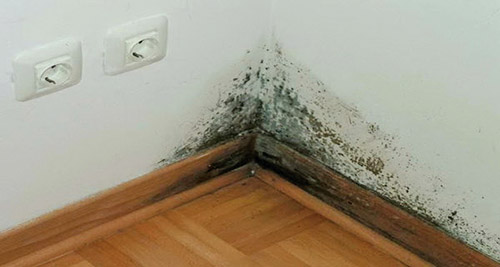
As we admire the beautiful colors of the fall season, all too soon we will be hearing about the flu, common cold and other illnesses. But we should pause to realize that perhaps what is causing us to feel run down or sick is not the common cold, but something lurking in our homes, offices, schools or houses of worship.
It is not often that we consider exposure to mold as being a possible source of a host of symptoms, including sore throat, chronic fatigue, headaches, itchy and watery eyes, runny nose, rashes, coughing, sneezing and at its worst, a compromised immune system or asthma. The truth is that molds are known for their production of irritating substances, as they can in fact lead to each one of these reactions or others.
What Is Mold?
Mold is a type of fungus that sprouts from tiny spores that float in the air landing anywhere they see fit. Spores are to mold as seeds are to plants. When spores find a spot with enough moisture, they can germinate, and grow into mold. Mold thrives in areas where humidity in the air is high. As moisture evaporates into the air it increases the humidity indoors. A temperature of 65 degrees Fahrenheit or higher is ideal for mold growth. Mold growth can become a recurring problem. Infestations are often seen resulting from broken or leaking pipes, an overflowed toilet, washing machine, leaking roofs, water heaters, air conditioning systems and in damp basements. If you notice a musty odor in a specific area it means you should check for damp walls, carpet, flooring and any other spaces that may be breeding grounds for mold. The key is to catch and treat a mold problem immediately, before the infestation becomes worse or causes permanent damage.
Assessing Mold
Unfortunately, not all molds are the same. In the mold kingdom, there are over 1.5 million species of mold worldwide. Some produce toxins while some are allergens. A licensed mold assessor can perform tests to determine what type of mold is present. This is important because it will help determine the health risk and how best to remediate it. For the purposes of mold inspections and remediation, the goal is to identify whether the mold is allergenic, pathogenic or toxigenic.
Whatever your indoor air quality concerns may be, or if you suspect that your indoor environment is contributing to your poor health symptoms, call us at Hudson Valley Environmental to discuss your concerns and to schedule an inspection. We provide comprehensive indoor air quality testing and environmental inspection services for homeowners, property management companies, hospitals, insurance companies, schools and health care professionals to help them solve their indoor air quality problems.
By Seth Piker
Seth Piker is a NYS DOL-certified mold assessor and EPA-certified lead risk assessor, with 25 years’ experience and a master’s in environmental and occupational health and safety. Email [email protected] or call 845-249-1987.










